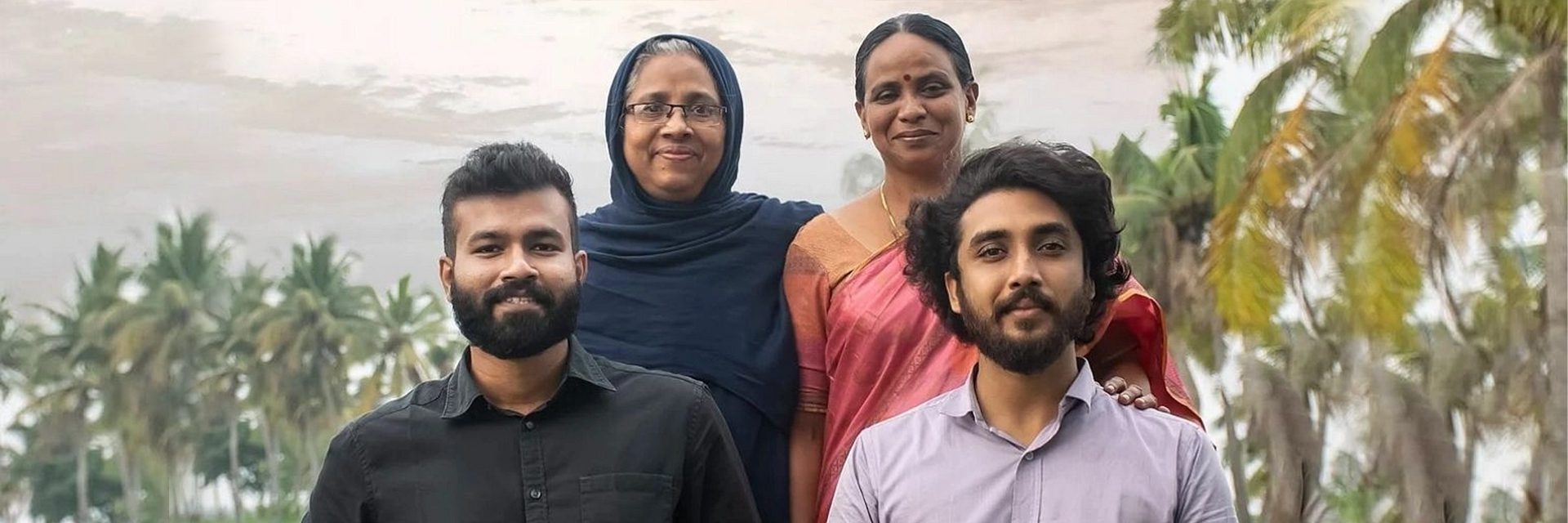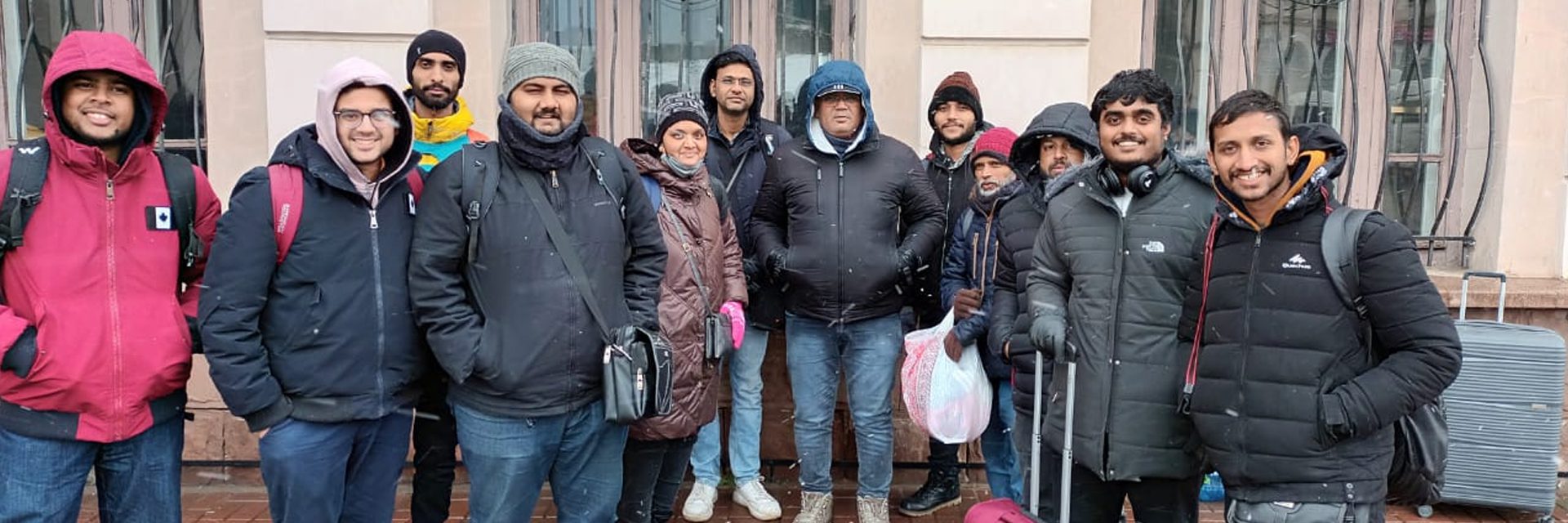(March 10, 2022) If a fusion of shrimp and papaya isn’t exotic enough for you, then perhaps the opportunity to buy a bottle of pickles with cryptocurrency just might be. For Indian entrepreneur Hafez Raman, co-founder of Athey Nallatha, the startup that offers ‘an NFT collection made by mothers of India’, this is the culmination of a lifetime spent in pursuit of unconventional choices. For instance, in school, as his peers weighed their prospects in engineering and medicine, Hafez was thinking of relativity and quantum mechanics. He also realised early on that he would never work a nine-to-five. Instead, he began his career as a copywriter, did an MBA and went on to found an EdTech startup.
When the idea to start a business arose during the pandemic, Hafez jumped at it and called Akshay Raveendran, a friend from his business school days. “He asked me for a day to think things over but called me back in 40 minutes,” Hafez said, in an exclusive interview with Global Indian.
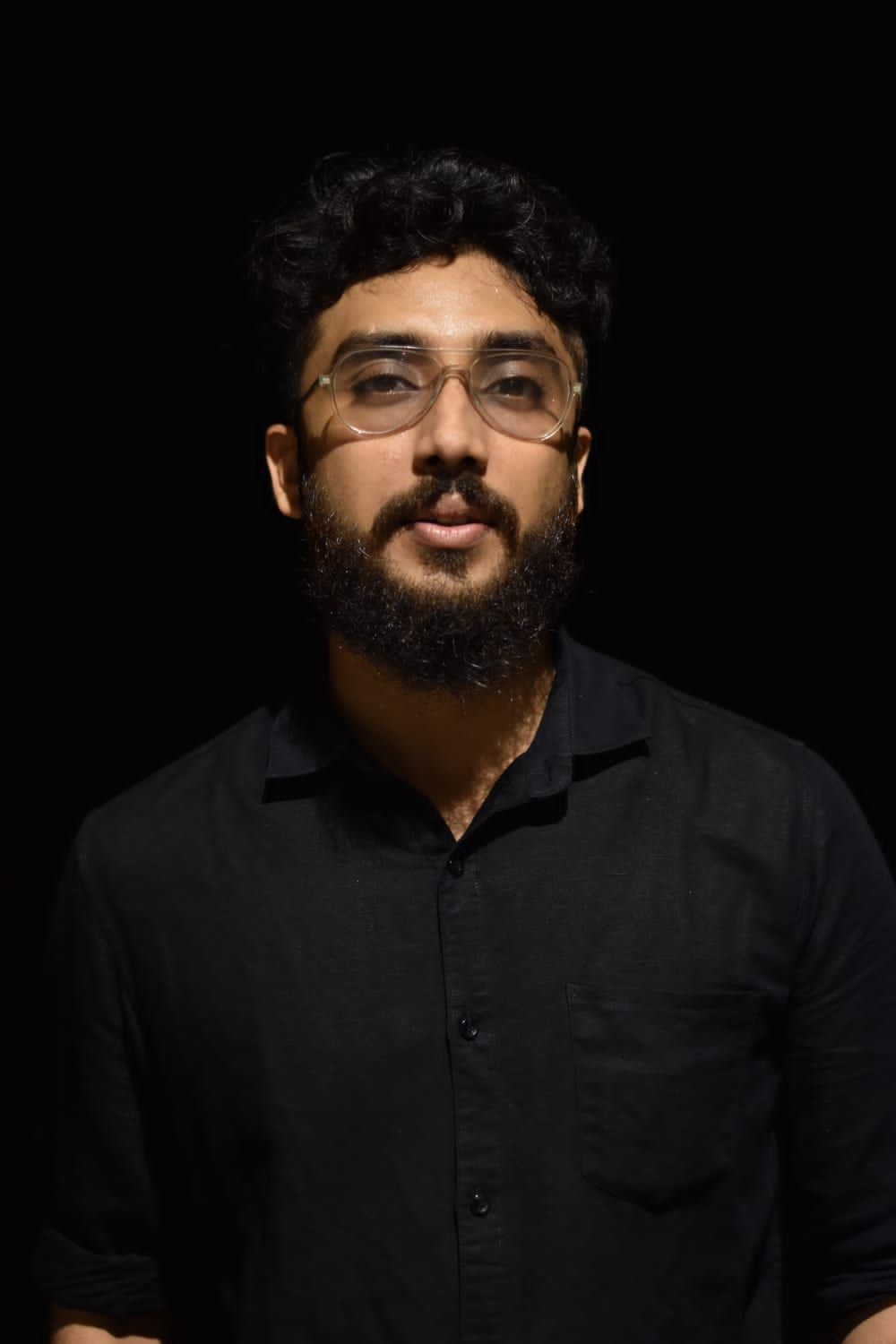
Indian entrepreneur Hafez Raman, co-founder, Athey Nallatha
The aforementioned Chemmeen pickle is flying off the shelves, reports Hafez. Over the last year and a half, Athey Nallatha, which means ‘yes, that’s good’ in Malayalam, grew too big for his mother’s kitchen. Today, they function out of a factory in Kochi alongside some of the biggest players in the game. Currently, in the process of setting up retail businesses in the UAE and Germany, Athey Nallatha already takes individual orders from across the world.
In college, Hafez studied photonics at the Cochin University of Science and Technology and did his research at IIT Bombay. “I also had a passion for writing, so I became a copywriter.” In 2016, he went to do an MBA at the CSMS Cochin School of Business, where he met Akshay.
With his ed-tech company in mind, he began his career as an entrepreneur, creating a set of ‘brain-mapping’ tools to implement in schools. Based on psychologist Howard Gardner’s Theory of Multiple Intelligences, the “tools can help us tap the brain better,” Hafez explains.
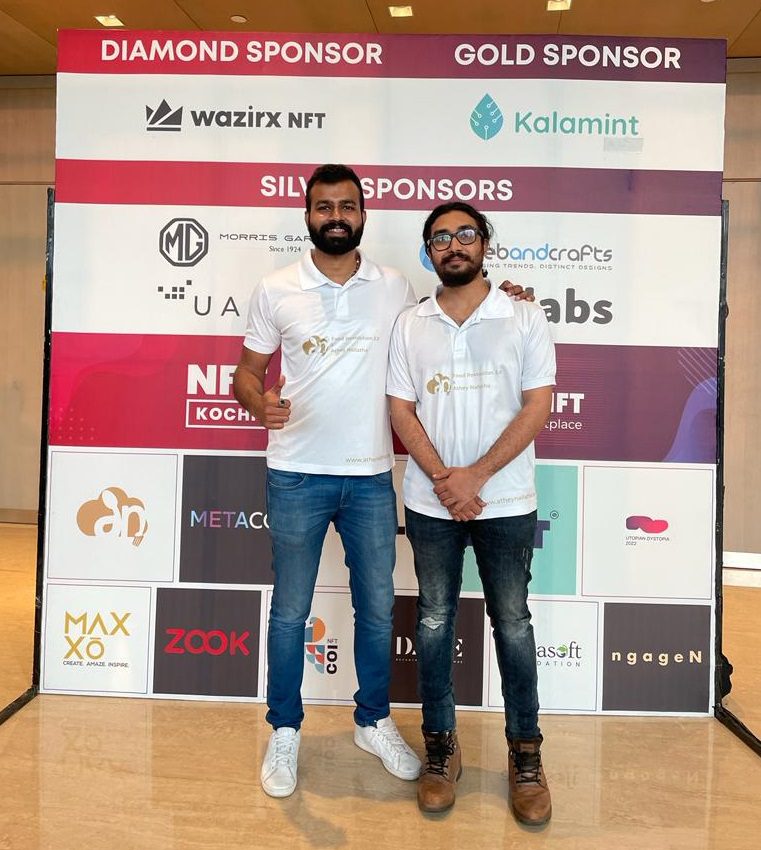
Hafez Raman and Akshay Raveendran, co-founders, Athey Nallatha
‘In a pickle’ during the pandemic
It was during the second phase of the lockdown, in September 2020, that the idea for Athey Nallatha came about, based on his mother’s suggestion. “I had tried a number of business ideas by this time, from ed-tech to handlooms. My mother asked why I couldn’t start a business that would not be hit by the pandemic and employ people who need the work. She suggested a food startup.”
Things fell into place and within a month, the company was up and running. They started out with highly perishable products like salads and fruit punches. “We thought of a subscription plan and a hyperlocal streaming system. We had a pool of delivery boys too, so we were able to proceed,” Hafez explains. However, dealing with products that have a shelf life of only one day proved too big a logistical challenge to overcome and finding the right product was imperative. “It couldn’t just be any product. There needs to be room for it in the market and the timing has to be just right.” That’s when he remembered his mother’s pickles,” he adds.
Behind the recipe
Why pickles? “There’s a story behind it,” Hafez smiles. His mother, Aneesa Ashraf, grew up in a household where money was a struggle. Her brother was forced to quit studying and find a job; like so many Keralites, he decided on the UAE. “He was a lot younger than my mother and she didn’t want him to feel homesick, so she would make pickles for him.” All this took place much before Hafez was born – but the pickles were an instant hit. “She would use meat, vegetables and her own masalas – they actually resembled a curry more than a pickle,” he remarks.
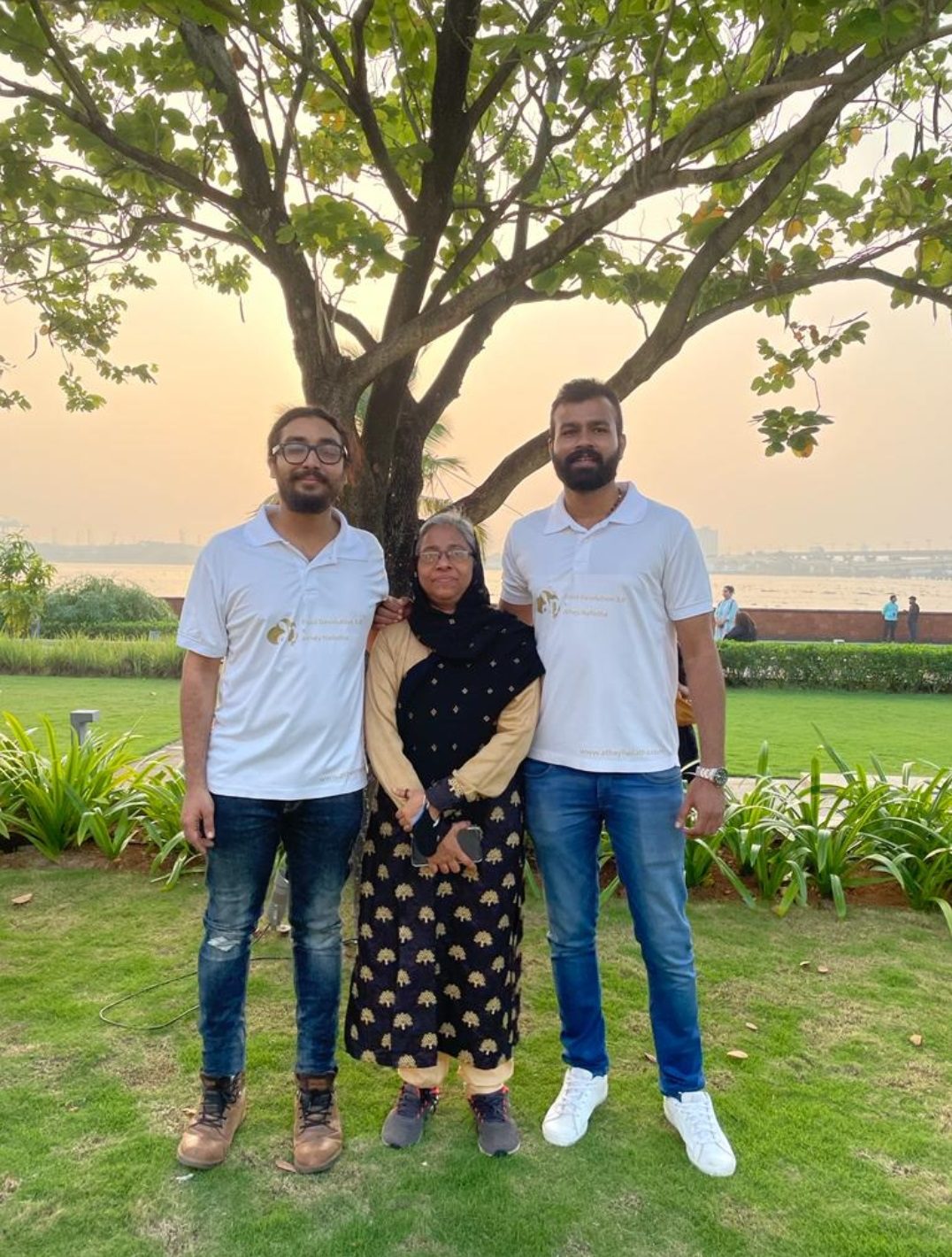
The founders of Athey Nallatha, Hafez Raman (left) and Akshay Raveendran, with Hafez’s mother, Aneesa
Hungry for change
As they embarked on an extensive period of research, Hafez and Akshay uncovered less-than savoury details about the packaged food industry in India. “There wasn’t a single mainstream player in the market dealing with quality products. I know because I ran a series of biological tests on them,” he says, adding, “We’re all eating poor quality food and because the pickles are so heavily masked with masalas and salt, we can’t tell the difference.” The prawns used in pickles, for instance, can sometimes be up to two years old by the time they make it to your plate. Undercutting costs by investing in poor quality ingredients, like buying export-reject shrimp from major companies or the most dilute asafoetida available in the market – the industry was rife with shoddy business practices. It only made him more determined to carve his own path.
Athey Nallatha began as a set of fragmented units, with a number of middle-aged women all pitching in to make their pickles. “At first, my mother and my friend’s mother joined us to produce 60 bottles a day,” the Indian entrepreneur says. Three months later, Chemmeen, the aforementioned prawn and papaya pickle was a bestseller. It was quickly becoming clear that working out of his home kitchen wouldn’t suffice any longer. “We started with two mothers and grew to four,” Hafez remarks. “It was time to move to a bigger kitchen.”
Social impact
By this time, they had attracted media attention, with a business model that walks the fine line between profits and making social change. Employing women ensured jobs for a number of people who had lost theirs due to the pandemic. “We had many mothers approach us, not just to get into the manufacturing side but also for sales. They wanted to be a part of it because they could feel the difference,” he says of his employment model that set the company apart, adding, “I realised that I needed to build a community.” His company now employs over 100 women.
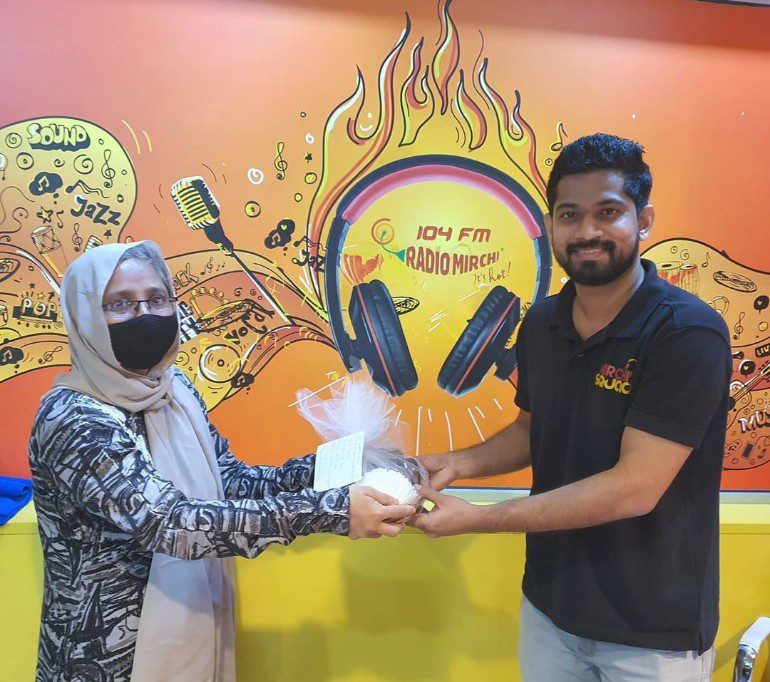
The cryptocurrency route
Dealing with steep overheads and a growing clamour from women in Kerala asking to be part of Athey Nallatha, Hafez and Raveendran needed to think outside the box. As they studied the problem, they found that blockchain systems provided them with a solution. In September 2021, they began accepting payments in cryptocurrency. “It can enable a 15 percent reduction in supply chain costs due to the various transaction processes that are handled digitally. Reducing the quality of the product is not an option, nor was premium pricing all-around. A blockchain system might not yield results instantly but it is a viable long-term plan,” the Indian entrepreneur explains. The decentralised processes involved will also ultimately result in greater profits for farmers, in the absence of middlemen and other retailers.
Setting up a business and ensuring a profit margin is not the only bottom line for the Indian entrepreneur. As they became aware of the number of women who’re eager to work but don’t get the chance, Athay Nallatha also launched the Nallatha Project to upskill employees. “We have women who are eager to do sales for us, so we allow it. They can take a commission on every bottle and don’t have to worry about targets,” Hafez explains. “We also train them in manufacturing and production.”
- Follow Hafez Raman on LinkedIn

